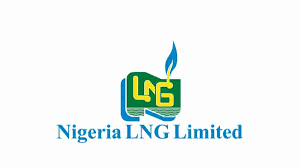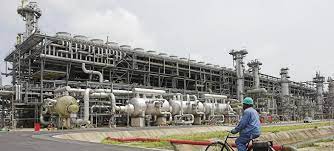One of the kids in my career coaching session talked about his difficult secondary school path. Even though his father worked in a menial job, he was determined that his only child attend the top school in the state. The father asked his employer for a large pay-ahead loan every term, or around every three months, which was more than half of his monthly income. His father’s finances were alleviated when he accepted a university with a modest tuition fee, but this persisted for the full six years of his secondary schooling. Though it looked strange that the firm permitted this, considering his length of employment, it seemed like a reward for his loyalty. Unfortunately, whereas his colleagues could afford to change employment in order to develop in their careers.
Nigeria LNG Limited (NLNG) was founded in 1989 and is a producing business that owns and operates a liquefied natural gas plant on Bonny Island, Nigeria. With the introduction of the idea of monetizing flared gas in the 1960s, interest in LNG began to grow. Cooking gas, sometimes referred to as liquefied petroleum gas or LPG, is a byproduct of refining crude oil or removing it from natural gas streams.
Our residences have apparently received around 2.4 million tons of liquefied petroleum gas (LPG) from NLNG during the previous 15 years. About 910 kg makes up a ton. Your home’s 25 liters of vegetable oil are about equal to 25 kilograms. You can see how crucial NLNG is to our homes from this. One of Nigeria’s most significant economic initiatives is NLNG.
Nigeria owns 49% of NLNG, with other owners including Shell and Total Enegies holding the remaining shares. It’s among the best managed organizations in our nation. Over the years, NLNG has also given the Federal Government of Nigeria dividends of almost $18 billion. The current MD, Philip Mshelbila, was recruited in from his position as CEO of Trinidad & Tobago’s Atlantic LNG Company. International business schools frequently use NLNG as a case study since it is a great illustration of a public-private cooperation.

It means that a consortium of banks led by Standard Chartered will source and distribute dividend payments to Nigeria from its 49% share in NLNG over a five-year period. The bank anticipates receiving a charge for the transaction, and the government will cover all interest payments for the duration.
It’s an odd request because, according to the Budget Office, the FG is only owed $2.2 billion from its investment in the NLNG over the next four years. How did they arrive at the figure of $7 billion? In effect, while the government claims that the securitization is for 5 years, unless a miracle occurs in gas production, we are looking at a situation in which the government is borrowing future money for up to 12 years. And that is before you factor in the interest on this debt.
Why is the government doing this, you may wonder. You may have seen how the naira to the dollar soared from N800 to N1300 in less than a month; this is because the country does not have enough dollars to meet demand.
What the government intends to achieve with NLNG is already being done with the country’s oil business, NNPC. The NNPC plans to borrow $3 billion from the African Export-Import Bank (Afreximbank), with repayment coming from future crude oil earnings. Oil exports make up 80% of overall national earnings, according to a Punch story from September of last year. We are taking future revenue and selecting how to spend it now.
What other countries should ideally do is attract foreign investors who come into the country with their dollars to invest in the local economy (FDI) or just in our stock market (FPI). However, this has not occurred in a long time due to a lack of trust in the government’s capacity to deliver an answer.
Morgan Stanley Capital International (MSCI) said this week that it will withdraw numerous significant Nigerian equities from the MSCI Frontier Markets Indexes, including the top nine based on MSCI weights. Dangote Cement PLC, MTN Nigeria Communications PLC, and Guaranty Trust Holding are among them.
Forget the jargon; what it implies for international investors is that the Nigerian stock market is a dangerous investment due to the heightened risk of repatriating monies from the Nigerian market. Naturally, this will erode investor trust and weaken foreign investor emotions toward the country. Another group, FTSE Russell, only recently upgraded Nigeria’s equities nation status from frontier markets to unclassified.
Again, don’t be concerned about the huge words. These are warnings to foreign investors to think carefully before investing in the Nigerian market.
The government intends to take the $7 billion loan from NLNG, another $7 billion loan from NNPC, a $3 billion loan from Afreximbank, and another $1.5 billion loan from the World Bank in the coming weeks.
There’s more to it. President Bola Tinubu only two days ago requested the National Assembly to support a proposal to borrow $7.8 billion and another €100 million.

If you’re still confused, this indicates that we’ve taken a large portion of our future income and then borrowed more money, which will be difficult to repay because the future income that would have been used to pay the loans is no longer available.
What do you think of someone who does something like this? What would your reaction be if you saw a country do this?
Of course, the guy will have a lot of money today, but what happens months later, especially if the loans are being used to build mansions for himself and his buddies, buy automobiles for his wife, and throw some money around?
| ReplyForward |


